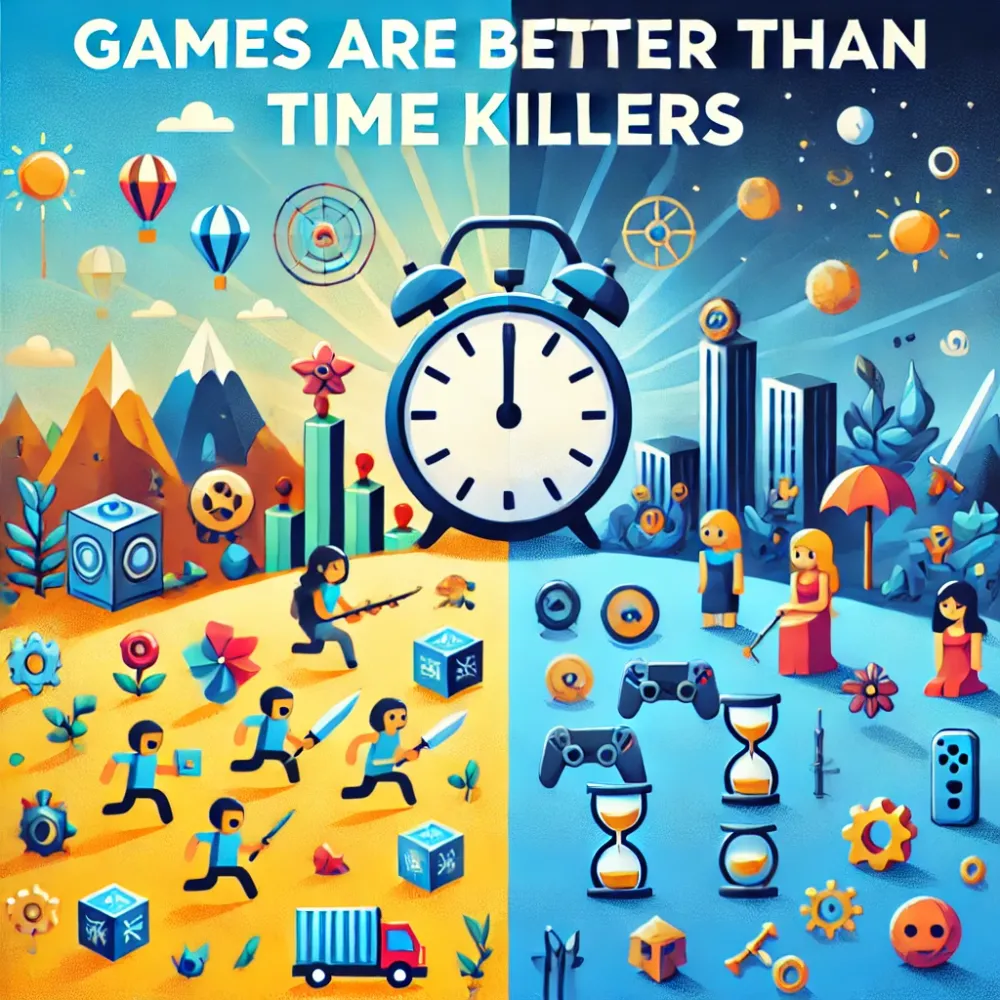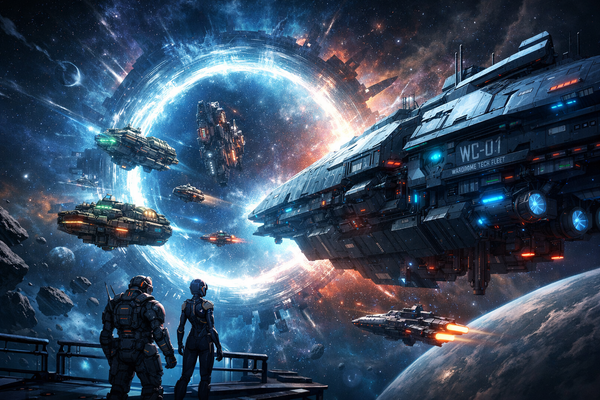Why games are better than time killers in indie game development
There is a constant debate about the type of experience developers should aim to create. On one hand, there are “time killers,” games designed to provide quick, simple, and repetitive distractions. On the other hand, there are games that offer rich, immersive experiences with meaningful content that captivates players on a deeper level. The indie scene has long been a space where creativity and innovation thrive, which is why focusing on developing games rather than time killers is crucial. Here’s why games with substance are far superior to quick, mindless distractions and how they can lead to greater long-term success for developers.
The nature of time killers
Time killers are typically designed with a focus on simple mechanics and instant gratification. These games provide short bursts of entertainment through repetitive actions that require little to no cognitive engagement. The core goal of a time killer is to keep the player engaged long enough to sell in-game items, push advertisements, or offer a constant loop of small rewards to keep the dopamine flowing(Fungies) .
For instance, games like idle clickers or match-three puzzles (which focus heavily on repetition and simple mechanics) are often considered time killers. These games are optimized for players looking for quick distractions, often played in short intervals during commutes or downtime. While these games can reach a massive audience due to their accessibility, they typically don’t foster a deep connection between the player and the experience.
The primary pitfall of time killers lies in their inherent shallowness. Once the initial excitement fades, players move on to the next time filler, leaving the game’s lifecycle limited. While they may generate quick bursts of revenue through ads or microtransactions, their value diminishes once the novelty wears off.
The impact of substance and meaning in games
In contrast, games that focus on delivering a meaningful experience go beyond simple mechanics. Indie games, in particular, have the freedom to experiment with narrative depth, emotional resonance, and innovative mechanics that provide lasting value. These games are often built around complex systems, layered storytelling, and gameplay that rewards player investment and engagement .
- Emotional connection and engagement: One of the key advantages of meaningful games is their ability to form emotional connections with players. Games like Celeste or Undertale have deeply personal stories that resonate with players on a personal level. The emotional investment in characters, plotlines, and game worlds creates a lasting impact. These games don’t just pass the time; they create memorable experiences that players want to revisit, and they foster communities that discuss and share their experiences .
- Replayability through rich gameplay: Instead of relying on repetitive loops, games with substance offer multiple layers of gameplay that make each playthrough unique. Roguelikes, strategy games, and role-playing games often feature procedural generation, diverse character builds, or branching narratives that encourage players to return again and again, not for mindless distraction, but for new and rewarding experiences. Games like Hades or Slay the Spire exemplify how replayability can be driven by depth and complexity, rather than repetition(Fungies).
- Fostering Long-Term communities: Meaningful games often give rise to dedicated communities. When players feel emotionally attached to a game, they are more likely to become advocates and engage with other fans. This leads to long-term engagement beyond the game itself. Indie games like Hollow Knight have strong fanbases that not only support the game through extended play but also contribute through fan art, modding, and community events .
- Creative freedom and innovation: Indie developers who focus on crafting meaningful games have more creative freedom than developers producing time-killers for mass appeal. This creative freedom allows for experimentation with new ideas, storytelling techniques, and gameplay mechanics that break free from industry norms. Developers can take risks in design that can lead to groundbreaking games, often garnering critical acclaim. Games like Gris and Inside defy traditional game loops by offering artistic, emotionally resonant experiences .
The risks of relying on time killers
While time killers have a role in the gaming ecosystem, they come with significant limitations. Developers who focus on creating time killers may find themselves constrained by the need for constant content churn and monetization tactics like ads or in-app purchases. This short-term focus on revenue often leads to player fatigue, and once players feel that a game is becoming exploitative, they may abandon it .
Additionally, time killers typically don’t inspire long-term brand loyalty. Players might cycle through several different games in the same genre, spending little time or emotional investment on any particular one. This lack of loyalty means that developers must continually create new content to keep players interested, which can become unsustainable in the long term .
Creating games that matter
In conclusion, while time killers may provide temporary entertainment, games with substance offer far greater long-term value for both players and developers. Indie developers, in particular, should focus on creating meaningful games that foster emotional connections, encourage replayability, and build lasting communities. These games not only create memorable experiences but also ensure a longer lifespan and more sustainable success in an increasingly competitive market.
By prioritizing depth, creativity, and player engagement over simple distraction, indie developers can create games that matter—games that stand the test of time rather than fleetingly occupying it.




